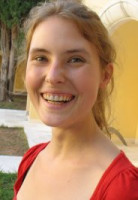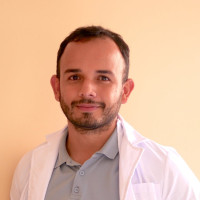Terrestrial Biodiversity
Wildlife & Invasive Species
Ph.D
France
2010.09.30
A quantitative sociobiological approach to fluctuating stress and resource management
Nature is full of social systems; humans live in societies, birds in flocks, ants in colonies, bacteria in biofilms. Within the group individuals cooperate and compete. The cooperation assures group strength and ability to outcompete other groups. On the other hand competition serves to get the highest self benefit/interest from the group. The more diverse the group is the stronger is the competition. But diverse groups are known to be stronger in fighting agains environmental changes and give higher productivity. So, how is diversity maintained despite between individual competition? I am studying this problem on microorganism called social amoeba, Dictyostelium discoideum. The cells of this amoeba spend part of their life as asocial individuals and part as part of the social group. I am looking competitive and cooperative interactions between different individuals in order to explain the diversity observed in the nature.
How Does Nature Deal with Stress and Risk
To add or modify information on this page, please contact us at the following address: community.research@axa.com

Darja
DUBRAVCIC
Institution
Université Paris Descartes
Université Paris V
Country
France
Nationality
Croatian
Related articles
Pandemics & Infectious Diseases
Terrestrial Biodiversity
Climate Change
Zoonose & Vector Borne Diseases
Wildlife & Invasive Species
AXA Award
Switzerland
Grand Jet d'Or Award on Planetary Health
The Covid-19 pandemic has highlighted our fragility as societies in the face of zoonoses, diseases that appear in the animal... Read more
Geneva Health Forum
(GHF)
Geneva Health Forum
Medical Treatment & Drug Development
Terrestrial Biodiversity
Agriculture, Crops & Soil Health
Biotech- and Nanotechnology
Insects & Microorganisms
Vaccines
Post-Doctoral Fellowship
Argentina
Harmless and Eco-Friendly Solution as an Alternative to Replace Synthetic Agrochemicals
Agrochemicals were introduced to protect crops from pests and enhance crop yields. However, they have become a long-standing concern due... Read more

Johan
RODRIGUEZ MELO
